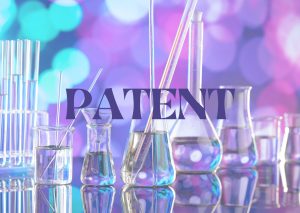 Section 3(b) of the Indian Patents Act, 1970 (act), prohibits the patenting of an invention that is intended to be used or exploited in a way that could be contrary to “morality” or which “causes serious prejudice to human, animal or plant life”. Assessment of morality and serious prejudice to life is left to the sole discretion of the Controllers of the Patent Office. The reference to the ambiguous concept of morality in an already widely worded provision and its subjective application may lead to the refusal of patent protection for socially useful inventions and medical technologies.
Section 3(b) of the Indian Patents Act, 1970 (act), prohibits the patenting of an invention that is intended to be used or exploited in a way that could be contrary to “morality” or which “causes serious prejudice to human, animal or plant life”. Assessment of morality and serious prejudice to life is left to the sole discretion of the Controllers of the Patent Office. The reference to the ambiguous concept of morality in an already widely worded provision and its subjective application may lead to the refusal of patent protection for socially useful inventions and medical technologies.
In Regeneron Pharmaceuticals v Controller of Patents and Designs before the Madras High Court, the patent had been refused on two linked grounds. The controller decided that the application could not be amended under section 59 of the act because the amendment would not be patentable under section 3(b).
In the original application, Regeneron Pharmaceuticals claimed a patent for a mouse, cell and use of the mouse. After the examination, the controller raised objections because animals are non-patentable under section 3(j) of the act. Regeneron amended the application to claim a method of making a genetically modified mouse. The controller rejected the amended application first because the claimed method was contrary to morality. The second ground found that the amendment changed the entire scope of the invention. The applicant appealed the controller’s decisions to the high court.
On the issue of non-patentability, the controller had held that the claimed method raised serious questions about morality. The modification of the genetic identity of the animal would cause it to suffer without there being any substantial medical or other benefit to humans. However, the court found that the applicant, in its response to the examination report, had specifically stated that the claimed invention would be for the benefit of humankind. The controller had briefly mentioned this in his decision. The applicant had clearly made a claim that the subject matter of the invention was beneficial to humanity through medical research. The controller’s conclusion that there had been no substantial medical or other benefit to mankind in genetically modifying mice was inconsistent with his own record of the statement of facts. The court held that the controller had not applied his mind to the accuracy of the claim being made.
On the second issue, the controller had held that the amendment from mouse and use claims to method claims was beyond the scope of the claims as originally made and thus not permissible. The court analysed the amendment, which claimed a method of making a genetically modified mouse, an antigen-binding protein, a targeting vector and a nucleic acid construct. The court held that there had been no change in the specification or the subject matter.
The subject matter of the amended claims was disclosed in the specification. However, the controller had only considered the original claims and the amended claims without the complete specification. The court relied on the landmark decision of Delhi High Court in Allergan Inc v Controller of Patents in holding that amendment decisions should consider the complete specifications of the pre-amended claims and not merely a textually confined reading of the pre-amended claims themselves. Therefore, the controller’s refusal of the claims amendment was without foundation and the court set aside the controller’s order.
The court directed the Patent Office to reconsider the application to amend. To ensure that no unconscious bias would taint such a reconsideration, an officer other than the original decision-maker should undertake that process. The Patent Office should assess whether the claims were non-patentable under section 3(b) of the act objectively, based on the case’s facts. The new decision-maker should apply their mind to the amended claims and analyse them on a factual basis. The final order should be reasoned and rational. This judgment holds that a pre-grant to amendments should be decided on a wider basis. They should be allowed if, the amended claims are considered in light of the particulars in the complete specification, not merely from a literal reading of the original claims.
Authors: Manisha Singh and Neha Ruhela
First Published by: IBLJ Here



